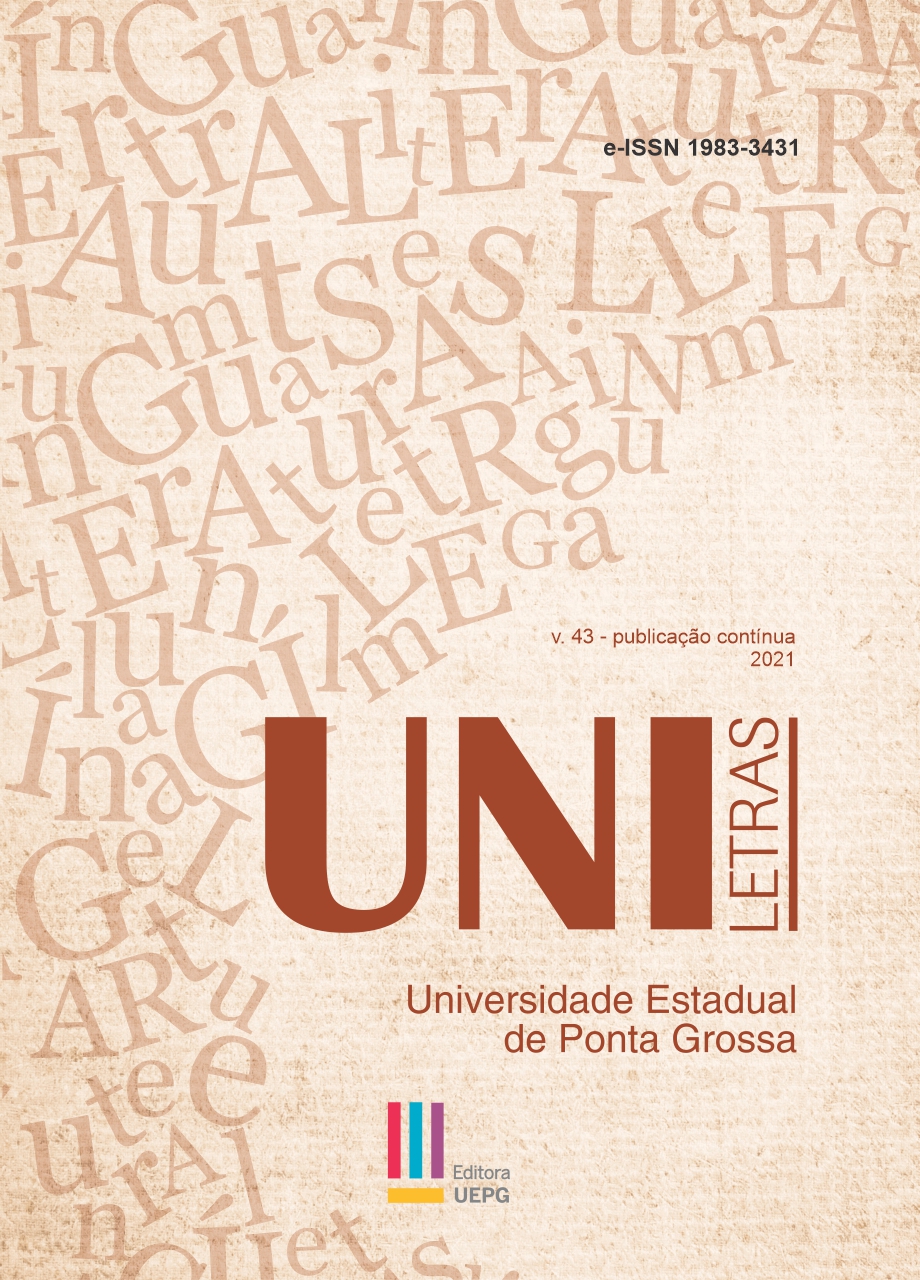THE GETTING OFF: THE FALSE SELF IN “LOVE”, BY CLARICE LISPECTOR
Abstract
The aim of this theoretical study is to understand, through the psychoanalytic framework, how the psychic illness is narrated in the short story Amor, present in the book Laços de família, published in 1960 by Clarice Lispector. In methodological terms, psychoanalysis was used as an interpretive reference, mainly based on the concept of false self developed by the English psychoanalyst D. W. Winnicott. The false self, in the protagonist Ana, reveals itself as a skillful psychic functioning to defend her from exposure to the true self, removing her spontaneous gesture and her own contact with her desires. In Ana, the revelation brought about by the tram’s descent point, in which she is forced to abandon what she had built with a view to her self-preservation, is what triggers in the character the possibility of a new existence, more authentic and more real.
Downloads
Downloads
Published
Issue
Section
License
Authors that publish in the journal agree with the following terms:
a) The authors keep the copyright and grant to the journal the rights of the first publication, with the work simultaneously being licensed under the Creative Commons Attribution License that allows the sharing of the work with the recognition both of the authorship and the initial publication in this journal.
b) This journal provides immediate public access to all of its content, following the principle that making scientific knowledge freely available to the public provides greater worldwide democratization of knowledge. For more information about this approach, visit Public Knowledge Project, a Project that developed this system to improve the academic and public quality of research, distributing OJS as well as other softwares to support the publication system to public/open access to academic sources. Names and e-mail addresses in this website will be used exclusively for this journal purposes, not being available for other ends.

This work is licensed under a Creative Commons Attribution 4.0 International License.





